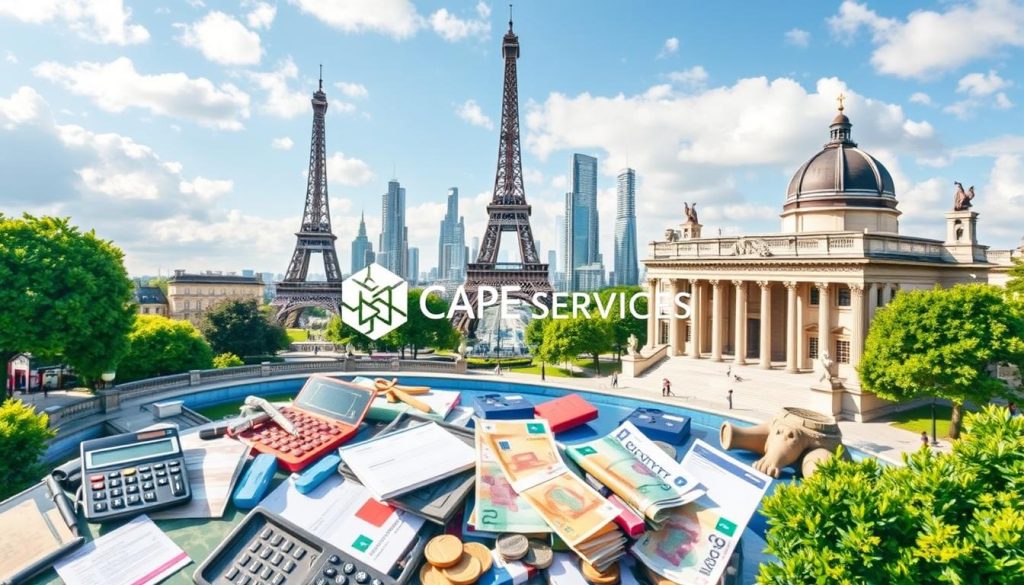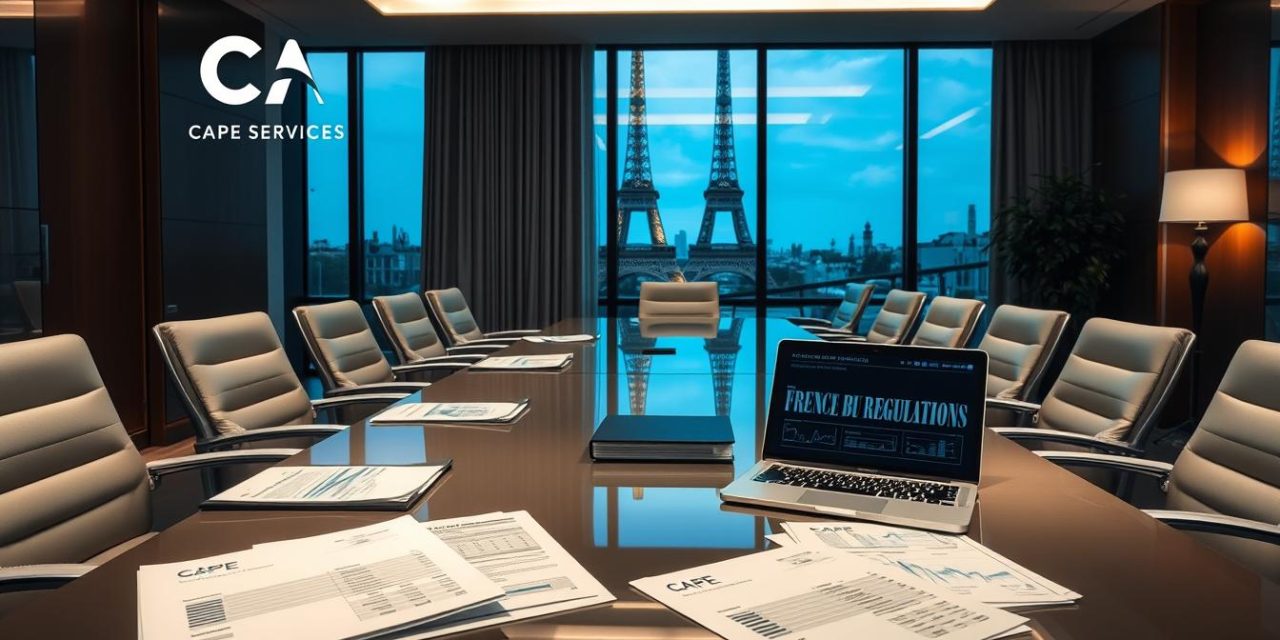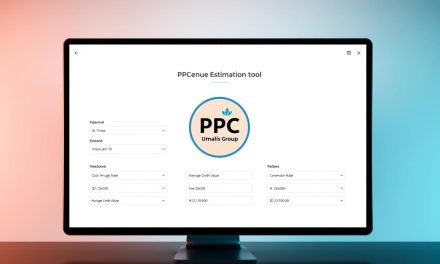Understanding French business regulations is key to success in France. The country values cultural nuances, with 34% of women in top business roles1. Knowing these laws helps professionals thrive in the French market. We aim to guide you through the complexities of French business, where planning meetings well in advance is a must2.
In France, politeness is paramount in business interactions. Greetings involve handshakes and titles like Monsieur and Madame1. Meetings need to be planned weeks ahead, and being on time is crucial2. By grasping these cultural and legal aspects, you can forge strong ties with French colleagues and grow your business in France.
Table of Contents
Key Takeaways
- Understanding french business regulations and cultural nuances is crucial for successful partnerships and collaborations in France.
- French business culture values politeness and courtesy in greetings, conversations, and negotiations.
- Business meetings in France are expected to be scheduled at least two weeks in advance and confirmed a day or two before.
- Formal greetings in French business settings involve handshakes and using titles like Monsieur and Madame followed by last name.
- French business laws and regulations play a significant role in shaping the country’s business landscape.
- Punctuality is highly valued in France, and french business culture emphasizes formality and courtesy in negotiation.
Overview of French Business Regulations
French business rules aim to create a fair and competitive market. Knowing these rules is key for those working in France. The french legal requirements help protect consumers, workers, and the environment. Companies with 50 or more employees must show their gender pay equity score online by March 13.
New laws in France keep the business scene fair and transparent. For instance, the PACTE law in 2019 helped small businesses and startups. It made patent applications easier and extended utility certificates to ten years4. France also updated its rules on foreign investments to keep things clear and safe4.
It’s vital for professionals to keep up with France’s business rules. This helps avoid legal issues and makes the most of business chances. Staying informed and following legal advice is crucial.
- Gender pay equity law
- PACTE law
- FDI regulations
- Corporate Duty of Vigilance Law
Knowing these rules helps professionals work legally and avoid problems3. It’s also important to remember that these rules can change. Staying updated is key to staying legal4.
Types of Business Structures in France
Understanding the different business structures in France is key. Each structure has its own rules and needs, as outlined in the French commercial code. The type of business you choose affects how you operate, pay taxes, and handle legal issues.
A sole proprietorship, or Entreprise Individuelle (EI), is popular in France. It doesn’t need any money to start5. On the other hand, the Société à Responsabilité Limitée (SARL) is good for many types of businesses5. The public limited company (SA) needs at least two owners and €37,000 in capital6.
Other options like the simplified joint stock company (SAS) and the simplified single-person joint-stock company (SASU) offer flexibility6. The general partnership (SNC) and the professional civil society (SCP) are also available. The SNC needs at least two partners, and the SCP lets several people work together in a liberal profession6.
For more details on these business structures, check out French business regulations. Knowing about these structures and their needs is vital for doing business in France. It helps ensure you follow the French commercial code.
Registration Process for Businesses
Starting a business in France means following several steps. You need to pick the right business type, get the right licenses, and follow compliance regulations in France. Knowing what each business type needs is key. For example, an S.A. (Société Anonyme) must have at least €37,000 in share capital7.
Also, an S.A. not listed on the stock exchange needs 2 shareholders7. But, a listed S.A. must have at least 7 shareholders7.
When you register, you must give certain documents. These include details about the business and its owners, as the National Register of Companies (RNE) requires8. The RNE helps make French businesses more transparent and easier to start8. Remember, the time it takes to register can vary. But, following foreign investment laws in France is crucial to avoid fines or delays.
Here’s a quick guide to registering a business in France:
- Choose the right business structure
- Obtain necessary licenses and permits
- Comply with compliance regulations in France
- Provide required documentation
- Register with the National Register of Companies (RNE)
Getting help from a professional is a good idea. They can make sure you meet all the requirements. This way, your business can start off right in France.
Taxation Policies in France
It’s important to know about french business regulations and laws for those working in France. The tax system here is complex, with different taxes for various incomes and businesses. France taxes individuals on their worldwide income if they live here. It also taxes non-residents on income from France9.
The corporate tax rate in France is 25% for years starting after January9. The standard corporation tax rate is also 25%, as stated in Article 219 of the General Tax Code10.
Some key aspects of taxation policies in France include:
- Corporate tax rate: 25% for fiscal years starting on or after January9
- Value Added Tax (VAT): levied at the national level on goods and services supplied in France9
- Local taxes and contributions: applicable to businesses operating in France9
Small and medium-sized enterprises (SMEs) might get a tax break. They can pay 15% on profits up to €42,500 if they meet certain conditions10. It’s crucial for professionals to grasp these tax policies to follow french business regulations and laws.
| Tax Type | Tax Rate |
|---|---|
| Corporate Tax | 25% |
| VAT | varies |
| Local Taxes | varies |

Employment Laws and Regulations
Knowing business regulations in France is key for employers to meet their duties. France’s laws protect workers while allowing businesses to adapt. The french legal requirements for contracts, employee rights, and wages are strict.
The minimum wage in France is €1,766.92 monthly, or €11.65 an hour for full-time workers11. Overtime pay is higher, at +25% for 36 to 43 hours, and +50% after 44 hours11. Employers must also keep work hours under 48 per week, with breaks and limits on Sunday work12.
Some important employment laws in France include:
- Employment contracts must be in writing and can’t last more than eight months for trial periods11
- Workers get 25 days of paid leave yearly, plus about 10 public holidays12
- Statutory benefits include sickness, maternity, disability, and retirement plans11
For more details on business regulations in France and french legal requirements, check out this website. It has more on the rules and their impact on your business.
Health and Safety Regulations
When you do business in France, you must follow health and safety rules. These rules help keep workers safe and protect them from harm. Employers need to check for risks and take steps to reduce them13.
They also have to teach workers about safety. This includes lessons on first aid, fighting fires, and how to leave the building13.
The French Court of Cassation says health and safety at work is very important. They say not following these rules is a big mistake14. Employers must make sure safety measures work well, following a 1989 law14.
To meet these rules, employers should:
- Do regular risk checks to find dangers
- Teach workers about safety and give them important info
- Keep the safety report up to date every year
Environmental Regulations
France has strict environmental rules, following international and European laws, and its Constitution15. The Ministry of Ecological Transition handles ecology, environmental policy, and energy at the national level15. Companies must follow these rules, which include doing environmental impact assessments and starting sustainability projects.
The French government uses fines and other penalties to enforce these rules15. They also make sure public info on the environment is available to everyone15. Companies must follow these rules closely to avoid getting in trouble.
Foreign investment laws in France also focus on protecting the environment16. Companies must follow environmental rules16. They also have to report on their environmental impact in their annual reports16.
The following table summarizes the key environmental regulations in France:
| Regulation | Description |
|---|---|
| Environmental Charter | Integrated into constitutional law in 200516 |
| Duty of Vigilance | Requires companies to identify and prevent environmental risks16 |
| Extra-Financial Information | Requires companies to introduce extra-financial information into their annual management report16 |
Consumer Protection Laws
French laws protect consumers a lot. The Consumer Code in France says a consumer is anyone not working for business or profit17. This helps us know who these laws cover. Professionals, on the other hand, are those working for business or profit17.
The French government watches over these laws and checks if they’re followed17. For food safety, there are special rules to keep goods safe for consumers17. Different groups make sure these laws are followed in areas like travel, insurance, and health17. France started protecting consumers in 1905 with a law against fraud18.
Some important parts of these laws include:
- Suppliers must make sure goods and services are safe and of good quality17
- Businesses must follow laws and regulations on consumer protection17
- Products or services must meet what customers expect17
The French Consumer Code was first published in 1993. It outlines rules to protect consumers from unfair business practices18. It’s key for businesses to know these laws to treat customers right and meet their duties.
Following these laws helps businesses avoid trouble and keeps their reputation good. It’s important for businesses to keep up with changes in consumer protection laws. This way, they can serve their customers the best way possible.

Business Licensing Requirements
Starting a business in France means you must know the rules. You need to get the right licenses and permits. Changes in these rules can happen up to 65% each year19.
Businesses can use services to check if they meet all the rules. These services give reports and tell you what to do to stay legal19. It’s also important to check the rules often, like every few months or a year19.
In France, businesses must follow rules for invoices. They need to have invoices for sales and advance payments20. An invoice must have a unique number, the seller’s name, and other important details20.
Not following the rules can lead to fines, penalties, and even closing your business19. Some industries need special licenses19. By following the rules, businesses can avoid problems and stay open.
For businesses in strict industries, there’s a special package to help21. With over 19,000 licensing places, staying compliant is key21. Getting help from experts is a good idea.
Competition Law in France
Understanding competition law in France is key for businesses. The French commercial code sets rules for fair competition. Breaking these rules can lead to heavy penalties22.
The Autorité de la Concurrence enforces these laws. Companies must follow the rules to avoid fines and damage to their reputation.
The law bans anti-competitive actions like price-fixing and abusing a dominant position23. It also controls mergers and acquisitions to prevent unfair market advantages24. Companies can get help from experts and the French commercial code to understand these rules.
Anti-Competitive Practices
France bans anti-competitive practices like restrictive agreements and abusing a dominant position23. Companies must follow the rules to avoid penalties and keep the market fair.
Role of the Autorité de la Concurrence
The Autorité de la Concurrence enforces competition law in France22. It can investigate and fine companies that break the rules. Companies can also get advice from the Autorité de la Concurrence to follow the rules.
For more information on doing business in France, companies can look at the French commercial code. They can also get expert advice to make sure they follow the regulations24.
Intellectual Property Rights
Intellectual property rights are key in France’s compliance rules. It’s vital for professionals to know these rights to safeguard their work and follow foreign investment laws. French law makes it clear that licenses for intellectual property must have a set time limit25.
Lawyers who focus on intellectual property help with many tasks. They check if trademarks are available, file and register them, handle oppositions, and deal with legal issues25. The Institut National de la Propriété Industrielle (INPI) in France also offers info on trademarks, patents, and copyrights26.
To follow France’s rules, professionals can get help from the INPI and legal experts. Knowing about intellectual property rights and getting advice can help protect work. This ensures they meet the laws and regulations in France2526.
International Trade Regulations
International trade is heavily influenced by french business regulations and laws. The European Union has made trade agreements with many countries. For example, the trade deal with South Korea boosted EU exports by 60% in 2016, creating a €3.1 billion trade surplus27. Also, the Economic Partnership Agreement with Japan started on 1 February 201927.
The EU has rules to check foreign direct investments. These rules aim to boost European involvement in acquisitions by state actors27. Since 2006, the EU has included a chapter on sustainable development in its trade agreements. This chapter focuses on environmental conservation and protecting employees27. The New Legislative Framework, introduced in January 2010, updated existing laws to align with new concepts by 201628.
Some important parts of international trade regulations in France include:
- Import and export controls
- Tariffs and duties
- Trade agreements
Understanding these regulations is crucial for businesses. It helps them avoid penalties and fines. By following french business regulations and laws, businesses can fulfill their obligations and benefit from incentives.
Dispute Resolution Mechanisms
In France, resolving disputes is key to business success. It’s important for professionals to know how to handle disputes correctly. This ensures they meet their obligations and follow French laws29.
The French legal system has a clear order. It starts with the Constitution, then international treaties, EU law, and ends with parliament laws and regulations30. Knowing this order helps understand how disputes are solved.
Mediation and arbitration are growing in France. They help avoid court battles. Escalation clauses are also common. They make parties try to settle disputes before going to court31.
Here are some key facts about dispute resolution in France:
- In 2023, there were 164 « Tribunaux judiciaires, » 134 « Tribunaux de commerce, » and 211 « Conseils de prud’hommes » in French jurisdiction29.
- First-instance cases take at least a year. Appeals can take 18 months29.
- Exclusive jurisdiction clauses are in contracts between merchants, as per article 48 of the CPC29.
Professionals need to grasp French dispute resolution. This ensures they handle disputes well and meet French laws30.
Resources for Business Compliance
When you start a business in France, knowing the rules is key. The French commercial code sets the rules for businesses. It’s important to understand these rules to succeed. The minimum share capital for a Société Anonyme (SA) is €37,000. The corporate tax rate is 25%, but small companies pay 15% on profits up to €38,120.
Government sites like the French Ministry of Economy and Finance have lots of info. Legal advisors and consultants can help you understand the French commercial code. Industry groups, like the French Chamber of Commerce, offer support and resources. Cloud services are allowed in France, but they must follow strict rules set by the ACPR.
Here are some key resources for business compliance in France:
- Government websites: French Ministry of Economy and Finance, French Ministry of Labor
- Legal advisors and consultants: specialized law firms, accounting firms
- Industry associations: French Chamber of Commerce, French Federation of Small and Medium-Sized Enterprises
Using these resources helps businesses meet their obligations. It keeps them up-to-date with the latest rules. This way, they avoid legal problems and stay in line with the French commercial code and other laws.
| Resource | Description |
|---|---|
| Government websites | Provide information on doing business in France regulations |
| Legal advisors and consultants | Offer expert guidance on navigating the French commercial code |
| Industry associations | Provide support and resources for businesses |
Future Trends in French Business Regulations
Entrepreneurs and independent professionals in France need to keep up with thechanging regulatory landscape32. France has been business-friendly, with corporate tax rates set to be fully abolished by 202432. But, digital transformation and global trends will influence French business rules.
Expected Regulatory Changes
France wants to lead in green industries by 203032. This means more focus on environmental rules and sustainability. Also, the growth of e-commerce and digital platforms33will lead to updates in consumer protection and data privacy laws.
Impact of Digital Transformation
The B2C eCommerce sector in France is booming, with €159 billion in revenue in 202333. Businesses must adapt to the digital world. Understanding online advertising changes, like cost-per-click and conversion rates33, is key to staying competitive.
Global Influence on Local Regulations
France and the United States have strong economic ties, with $153.8 billion in trade in 202232. Global trends and agreements will keep shaping French business rules. It’s vital for businesses to know about compliance to operate in France or expand globally.
FAQ
What are the key regulatory bodies involved in overseeing business regulations in France?
In France, the Ministry of Economy and Finance, the Autorité de la Concurrence, and the Autorité des Marchés Financiers play key roles. They oversee business regulations.
What are the main objectives of business regulations in France?
Business regulations in France aim to protect consumers, employees, and the environment. They also promote fair competition and ensure legal compliance.
What are the different types of business structures available in France?
France offers various business structures. These include sole proprietorships, partnerships, limited liability companies (SARL), and public limited companies (SA). Each has its own benefits and rules.
What are the key steps in the registration process for businesses in France?
To register a business in France, you need to gather the right documents. Then, register with the authorities and meet legal and tax requirements.
What are the main taxation policies that businesses in France need to be aware of?
Businesses in France face corporate tax, value-added tax (VAT), and local taxes. They must comply with these to avoid penalties.
What are the key employment laws and regulations that businesses in France need to follow?
Employment laws in France cover employment contracts, employee rights, and minimum wages. Businesses must follow these to avoid legal issues.
What are the main health and safety regulations that businesses in France must comply with?
France has strict health and safety rules. These include workplace safety, employer duties, and reporting procedures. Businesses must follow these to ensure a safe work environment.
What are the environmental regulations that businesses in France need to be aware of?
France has environmental laws that businesses must follow. This includes impact assessments and sustainability efforts. Businesses must consider these in their operations.
What are the key consumer protection laws that businesses in France need to adhere to?
Consumer protection laws in France focus on consumer rights, product safety, and advertising. Businesses must comply with these to protect consumers.
What are the business licensing requirements that companies in France need to fulfill?
Businesses in France need specific licenses to operate. They must navigate the application process and renew these licenses to stay legal.
What are the key aspects of competition law that businesses in France must be aware of?
France’s competition law deals with anti-competitive practices and mergers. The Autorité de la Concurrence plays a key role. Businesses must comply with these regulations.
What are the intellectual property rights that businesses in France need to protect?
France protects intellectual property rights like trademarks, patents, and copyrights. Businesses must be aware of these to safeguard their assets.
What are the international trade regulations that businesses in France need to consider?
France has rules for imports and exports, tariffs, and trade agreements. Businesses must follow these when trading internationally.
What dispute resolution mechanisms are available for businesses in France?
France offers mediation, arbitration, and the court system for resolving disputes. Legal assistance is also available to help businesses.
What resources are available for businesses in France to ensure compliance with regulations?
Businesses in France can use government websites, legal advisors, and industry associations. These resources help them stay informed and compliant.
What are the future trends in French business regulations that companies should be aware of?
Future trends in France include regulatory changes and the impact of digital transformation. Businesses should monitor these to adapt to changing regulations.





